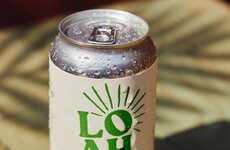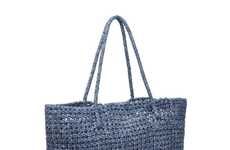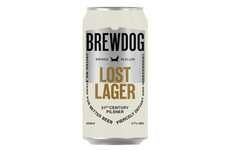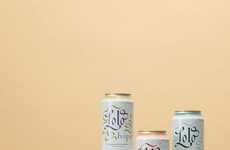
Lifestyles of Health and Sustainability
NEXT by Ramla — February 6, 2007 — Eco
References: apnews.myway & lohas
What is LOHAS? According to LOHAS.COM: "LOHAS is an acronym for 'Lifestyles of Health and Sustainability,' a market segment focused on health and fitness, the environment, personal development, sustainable living, and social justice."
In the wake of realizing the inconvenient truth about ecological imbalance and the personal lifestyle imbalance, a whole new class of consumers has arisen. They are "LOHAS consumers, sometimes referred to as Lohasians, ... interested in products covering a range of market sectors and sub-sectors, including: Green building supplies, socially responsible investing and 'green stocks', alternative healthcare, organic clothing and food, personal development media, yoga and other fitness products, eco-tourism and more."
This is no longer a "wave" or a fad, but a lifestyle change that is leading to sub-trends of responsible consumption, awareness of eco-friendly production, and most importantly, *rejection* of "irresponsible" and unsustainable practices.
While the Lohasians who are, according to LOHAS.COM, a "$228.9 billion U.S. marketplace for goods and services," embracing more healthy practices, they are also rejecting environment-unfriendly choices. It is suggested that the recent historical Ford loss of US$12.7 billion (Jan 2007) is partially due to the unpopularity of gas-guzzling SUVs (sports utility vehicles). Toyota's eco-friendly marketing, on the other hand, is a winning pitch.
Watch out for the market that goes by other names such as green consumerism. It's here to stay.
In the wake of realizing the inconvenient truth about ecological imbalance and the personal lifestyle imbalance, a whole new class of consumers has arisen. They are "LOHAS consumers, sometimes referred to as Lohasians, ... interested in products covering a range of market sectors and sub-sectors, including: Green building supplies, socially responsible investing and 'green stocks', alternative healthcare, organic clothing and food, personal development media, yoga and other fitness products, eco-tourism and more."
This is no longer a "wave" or a fad, but a lifestyle change that is leading to sub-trends of responsible consumption, awareness of eco-friendly production, and most importantly, *rejection* of "irresponsible" and unsustainable practices.
While the Lohasians who are, according to LOHAS.COM, a "$228.9 billion U.S. marketplace for goods and services," embracing more healthy practices, they are also rejecting environment-unfriendly choices. It is suggested that the recent historical Ford loss of US$12.7 billion (Jan 2007) is partially due to the unpopularity of gas-guzzling SUVs (sports utility vehicles). Toyota's eco-friendly marketing, on the other hand, is a winning pitch.
Watch out for the market that goes by other names such as green consumerism. It's here to stay.
Trend Themes
1. Responsible Consumption - Opportunity for businesses to cater to LOHAS consumers' demand for ethical and sustainable products.
2. Eco-friendly Production - Innovative companies can capitalize on the trend by developing environmentally conscious manufacturing practices.
3. Green Consumerism - The growing market of conscious consumers presents an opportunity for businesses to promote and sell eco-friendly and sustainable products.
Industry Implications
1. Green Building Supplies - Disruptive innovation opportunity to offer sustainable and eco-friendly alternatives for the construction industry.
2. Alternative Healthcare - Innovative solutions in the alternative healthcare industry can address the rising demand for natural and holistic treatments.
3. Organic Clothing and Food - Opportunity for businesses to capitalize on the increasing popularity of organic products and offer sustainable options in the fashion and food industry.
4.6
Score
Popularity
Activity
Freshness























